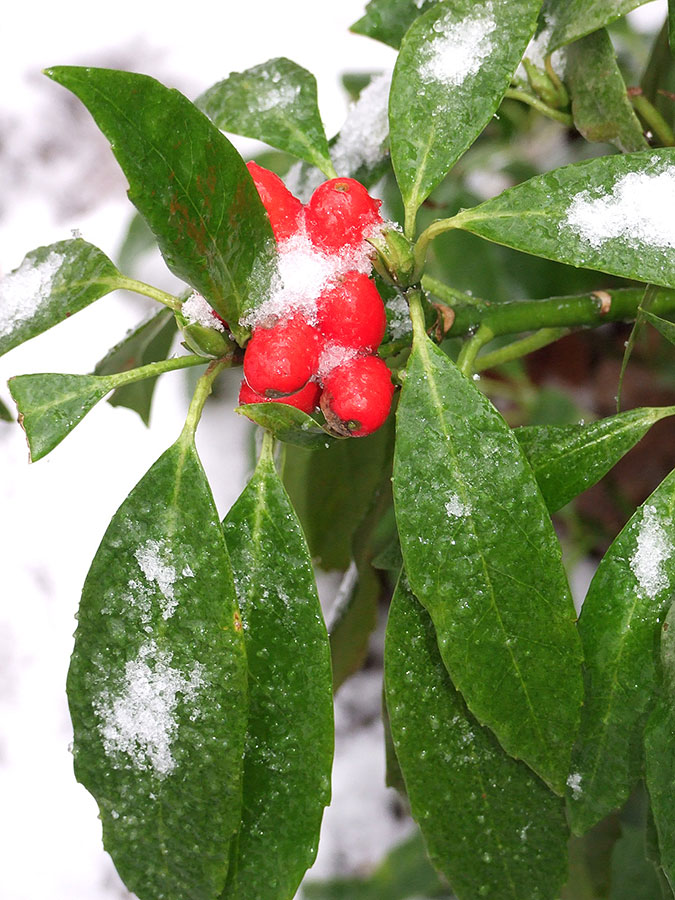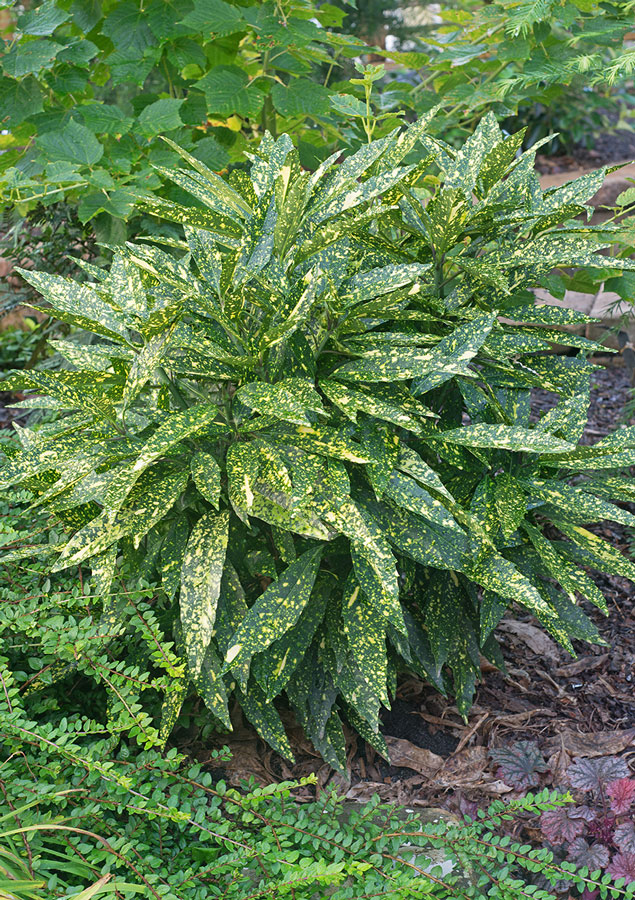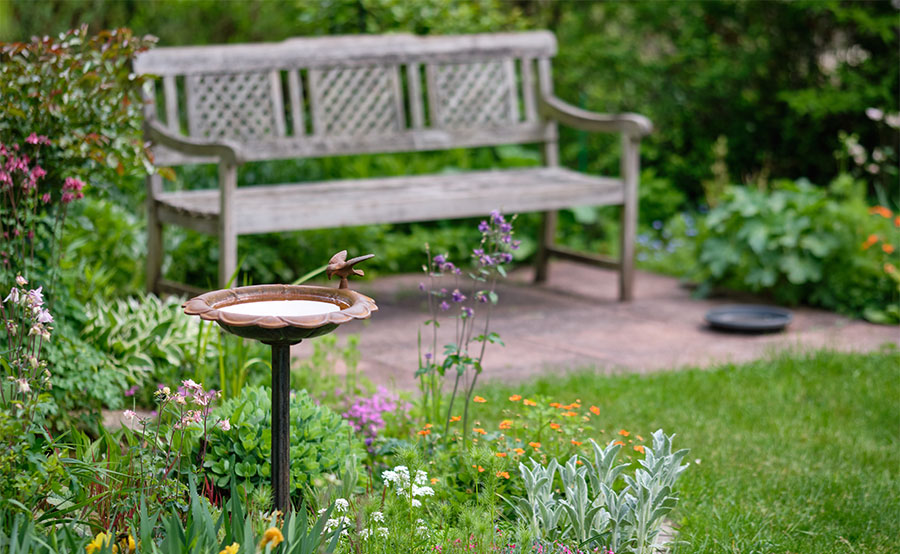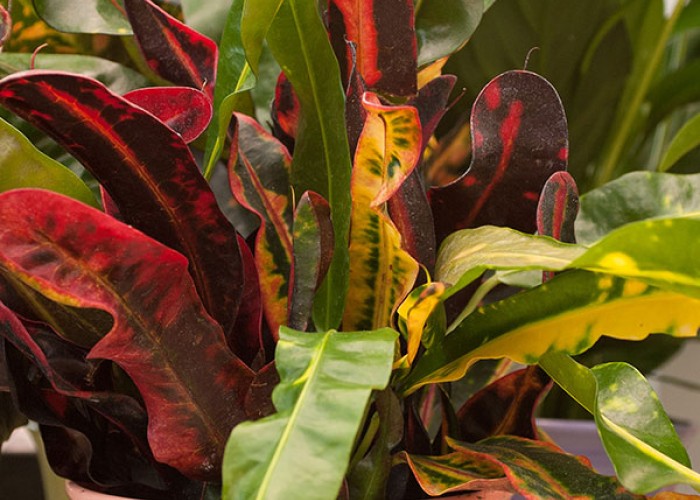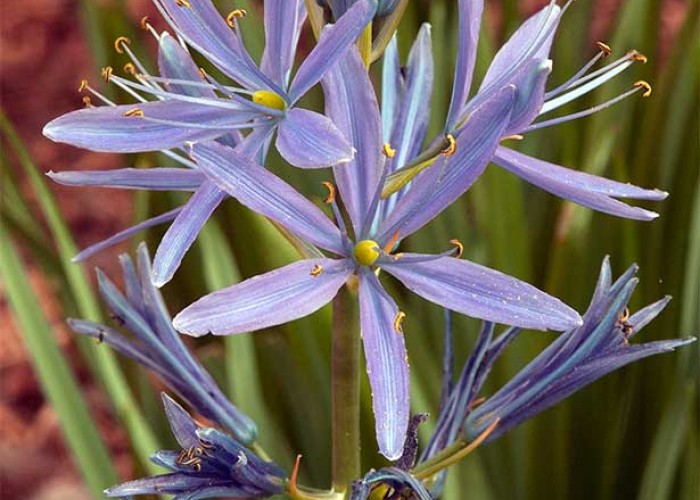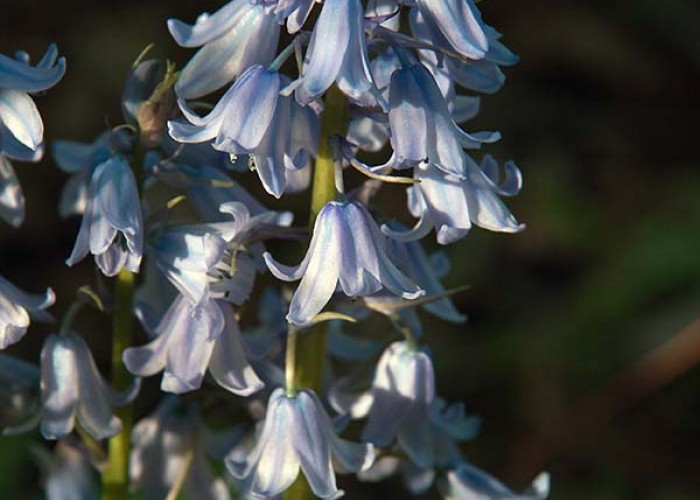Aucuba Attracts Attention Year-Round
Plus Garden To-Do’s for November
By L.A. Jackson By | Photos by L.A. JacksonI enjoy dependable garden beauty from workhorse plants that, through the four seasons, consistently present their particular splash of visual elegance. One big favorite of mine is aucuba (Aucuba japonica), a pretty broadleaf evergreen shrub that never fails to attract attention.
This is especially true with the popular variegated forms of aucuba, which are often called “gold dust” to reflect the many patterns of bright yellow flecks or streaks on their rich green foliage. These glittering showoffs perform best in areas most in need of interest: full to partially shady spots.
Non-variegated aucubas predictably fade into the simmering verdant summer landscape, but come early winter, they serve up a pleasant surprise. Aucubas are diodecious, meaning there are male and female plants. If both are located close together, the females usually produce clusters of merry crimson berries, which, contrasted with the deep emerald foliage, makes them as seasonally appealing as hollies and nandinas.
Aucubas are also confidence-builders for gardeners who think they are cursed with brown thumbs. These tough plants are drought tolerant, and, like hostas, they will do just fine in areas of dry shade typically found under stands of tall trees. Aucubas are also ideal plants for city gardeners because these evergreens aren’t bothered by most urban pollutants.
There is, however, one important requirement for a happy aucuba: drainage. This plant can suffer from root rot in a watery environment. So, locate it in an area of well-worked soil not prone to turning into a bog when the rains come.
Typical aucubas stretch upwards from 5 to 10 feet high. They are slow growers though, and besides, pruning in the early spring can hold these bushes to a desirable size.
And keep your snippers handy in the summer, which is a good time to propagate aucubas from cuttings. Just stick individual end clippings (about 5 to 6 inches long) into pots filled with average garden soil, move them to a shady location, water occasionally and see what happens. Aucuba is an import from the Orient, but it won’t be hard to find in our state. Having been a southern favorite for over 200 years, this beauty can easily be spotted in local garden shops and, of course, bought online.
Garden To-Do’s for November
- With the growing season winding down, now is a good time to take a thoughtful, studious walk through your landscape and look for areas where permanent features can be brought in to improve visual interest year-round. Need examples? Consider easy-to-add pretties like vases, statuary, benches, birdhouses, sundials or bird baths. Also, while activity in the garden is at a minimum in the winter, think about working on small construction projects that could be equally enhancing, such as stone or brick paths, a garden shed, walls, fences, a greenhouse, trellises or a water garden.
- Planting tulips this fall? Plant them deep — at least 6 to 8 inches down. This will provide a more consistent cold (especially during mild winters) to help stimulate spring flower production. As a bonus, such a bulb burial will make it much tougher on squirrels to find and dig up the sleeping beauties.
- Autumn leaves are excellent organic fuel to help fire up a compost pile, but they will break down much faster and more efficiently if they are shredded into small pieces first. Want an easy way to do this? Run ‘em over with the lawn mower!
- With insects and seed-producing plants becoming less available for birds now, begin a winter routine of refilling their feeders with fresh seed and suet once a week. And while putting out food for your garden-friendly flyers, also change the water in the bird bath.
-
More November Gardens
-
Share this story:

